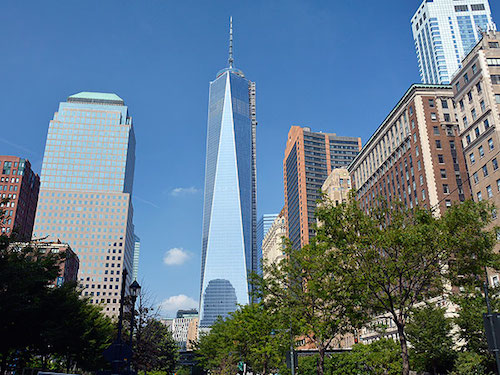Remember when the word “freedom” described the power to act without restraint and not, you know, whatever else the speaker might like? Me neither. I know I said I’d never forget, but I said that all the time back then. Anyway, “freedom” now refers to what we get for being American, plus aspects of American culture such as commerce, religious devotion, muscle cars, whatever. It’s a rhetorical trope. In the 21st-century United States, saying “freedom” will hypnotize a small percentage of your audience, much as you could manipulate people during the occupation of Paris by humming La Marseillaise.
I mention this migrating usage of “freedom” because I ran across a particularly egregious abuse of it in the article Court Refuses to Stay Its Decision Striking Down Virginia’s Same-Sex Marriage Ban. Just look at all those negations. Once you get around to refusing to overturn your decision to invalidate a ban, you know controversy has turned to mire. You can also tell by this argument:
“The people of Virginia and every other state should continue to be free to preserve marriage as the union of one man and one woman in their laws if they choose to do so,” said Byron Babione, senior counsel for the Alliance Defending Freedom, which represents a Prince William County court clerk who supports the ban.
That there is a choice specimen of what I will call The Appeal to Freedom.
The Appeal to Freedom presents in terms of freedom an argument that has little to do with it. In this case, a lawyer for the carefully-named Alliance Defending Freedom asks us to consider gay marriage in terms of the freedom to make it illegal. That’s counterintuitive, since the two positions on this issue are:
- people should be allowed to marry people of the same sex, and
- people should not be allowed to marry people of the same sex.
One of these positions asks us to make Virginians free to do more stuff. If you cared only about maximizing freedom, you would have no problem deciding which of these comported with your values. That’s a problem for Babione, since we all like freedom. Obviously some of us like other things, too, e.g. the Book of Leviticus, but that’s not a top-shelf shared value like “freedom.” So the Alliance Defending Freedom reduces the comparative power of this value to decide the argument by associating its position with freedom, too.
We saw a similar Appeal to Freedom last week, when a man who wanted to prevent Missoula’s naked bike ride argued that it infringed on his freedom to be along the route and not see it. In both cases, evoking freedom as a reason to not let people do something dilutes the power of freedom in the argument. That’s good for the anti-freedom side, at least in discourse over that particular issue.
Note, though, that it is bad for discourse in general. These cynical Appeals to Freedom are worthwhile partly because shared values are such a good way to resolve arguments. We need them, and now that Catholicism and dignity of comportment are over we have precious few. It is therefore dangerous to construct arguments against individual liberty as pro-freedom, because it reduces our ability to talk about and implement one of our shared values when we really need to.
By using freedom to mean both “the power to do things” and “the power to prevent people from doing things,” we make the meaning of the word less specific. It stops referring to a particular thing we all value and becomes a vague synonym for “good.” That deprives us of a useful tool for coming to agreement. Since both sides of any debate invariably present their positions as good, any declaration of simple goodness is dead air.
It’s a whereof one cannot speak, thereof one must be silent problem. Making “freedom” mean anything makes it difficult to talk about freedom meaningfully. For people who want to restrict others, the sinister beauty of The Appeal to Freedom is that it renders freedom a less decisive value in arguments generally. The more you use that word to mean its opposite, the more discourse functions as if that shared value did not exist.
I’m not sure when I started using “freedom” ironically. It was sometime before the Freedom Tower but after freedom fries. It was before logic dictated that America is always free because freedom is anything American. Maybe I was more free then than now, but it’s hard to say—because what does that mean, really?





This is one of those articles that you’d just love to be able to jam through the brains of “freedom-loving” Americans.